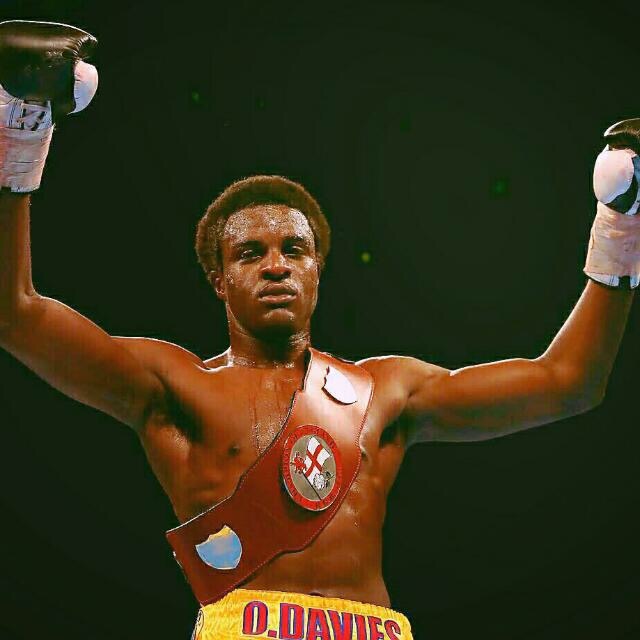From Hackney streets to the glitz and glamour of boxing in front of a sold out crowd at the 02 Arena, Ohara Davies talks to Manny Sarpong about his struggles and journey to become the English Lightweight Champion...
Newly crowned English Lightweight Champion Ohara Davies, sits on the edge of the ring and looks at the many cameras taking snaps of him and it reminds him of when he had his mugshot taken while in custody for possession of Class-A drugs. How times have changed. Another look around at the flashing lights in the arena and he’s transported back to his teenage days when the only flashing lights he saw were from the local police cars.
“The feeling is nice, the feeling is great. It feels like that’s what you’ve worked all those years for. I’m young but it feels like it’s been so long. Through my rough teenage days, my amateur career and now pro career, it’s just felt so long. And now it’s paid off, my first of many belts, hopefully.”
A troubled youth, like so many of his friends at the time, Davies recalls dealing with narcotics and living life on the ‘streets’. Now part of sports promoter Eddie Hearn’s Matchroom Boxing, the unbeaten champion reflects on his transition from the problem child to the pro game.
Downward spiral
Born and bred in Hackney in the early 90s, Davies was enticed into the underground gang culture at an early age. It was at a time when inner city London had become the breeding ground for Grime culture – which derived the majority of its lyrics from the rough streets of London.
“Boxing wasn’t something that I wanted to really get into at first. Where I’m coming from there was a lot of gang issues and troubles with the police. I got kicked out of my school, I was on bail for GBH and I was only 16yrs old. My life was going on downward hill.
“I used to go to a certain youth club with my boys and they had a boxing coach that used to come in every Wednesday and there were about 30 of us that used take part. But eventually, everyone stopped going and I was the only person that still went. I was an angry kid. I just liked to fight, so I was motivated to go and hit the pads and it was something that I liked to do once a week.”
But soon after, the youth club lost the funding to keep the coach Tony Cesay, but fortunately Cesay kept in touch with the young Davies and invited him down to the boxing gym where he trained. Tony took Davies under his wing in a real-life ‘Rocky and Mickey’ way to help maintain his motivation and encourage him. As well as training Davies was also given the opportunity to attend professional fights and watch to watch inspiring British boxers like Amir Khan and Audley Harrison, which in turn fuelled his desire to become a pro-boxer too.
“Because I wasn’t in school at that time, he literally made sure I was in the gym Monday to Sunday. No days off. He kept me in the gym so I wouldn’t be out getting myself in trouble. I didn’t have any time to get back into the gang life. He worked me hard.”
Inspired to succeed
The discipline was something that a young Davies needed at the time to keep his mind of the streets. It eventually became a rigorous routine and and he kept doing it. “I am where I am today because of his help.”
Three years ago, prior to turning pro, Davies attended a training camp at the Mayweather gym in Las Vegas, which he believes was instrumental in his development and leap onto the pro circuit. The training helped him greatly, not in terms of boxing skill, but keeping the fire burning inside and seeing the kind of life that he could possibly give himself and his family.
“It was intense, but that’s how the Mayweather gym is, full of competition and full of hungry young fighters. When I came back to the UK, I was hungrier than ever to succeed in the sport.”
Feeling that his fighting style suited the professional game, Davies decided to turn professional after only 18 UK amateur boxing bouts under the guidance of Tunde Ajayi. Davies is now undefeated (11-0, 9KO’s) and is grateful for the chance to do what he loves best, earning money to provide for his family. More importantly, able to inspire more young people like himself to get involved in sport and not be seduced by the gang culture.

